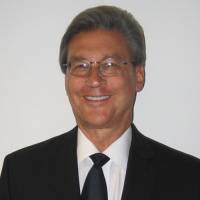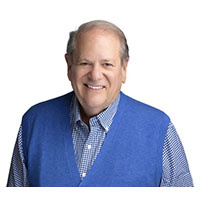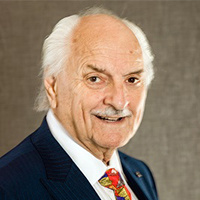Thomas Howlett | Bloomfield Hills Personal Injury Lawyer

Top Local Lawyers
 Premium
Premium
Nicholas Somberg
Somberg Law, PLLC
DUI-DWI, Criminal,
31700 Telegraph Rd Suite 210
Franklin, MI 48025
 Premium
Premium
Shiraz K. Khan
THE SHIRAZ LAW FIRM, PLLC.
Car Accident, Personal Injury, Slip & Fall Accident, Sexual Harassment, Contract
30800 Telegraph Rd. Suite 380
Bingham Farms, MI 48025
 Premium
Premium
Lee Steinberg
Lee Steinberg Law Firm, P.C.
Car Accident, Motorcycle Accident, Slip & Fall Accident, Malpractice, Wrongful Death
29777 Telegraph Rd. Ste 1555
Southfield, MI 48034
 Premium
Premium
Eric S. Steinberg
Lee Steinberg Law Firm, P.C.
Car Accident, Motorcycle Accident, Personal Injury, Slip & Fall Accident, Medical Malpractice
29777 Telegraph Rd Suite 1555
Southfield, MI 48034
 Premium
Premium
Jamie R. Ryke
Thav, Ryke and Associates, Attorneys at Law
Estate, Estate Planning, Wills & Probate, Trusts,
24725 W 12 Mile Rd Suite 110
Southfield, MI 48034
 Premium
Premium
Robert F. Rubin
Rubin Law
Accident & Injury, Car Accident, Personal Injury, Slip & Fall Accident, Animal Bite
30300 Northwestern Hwy Suite 120
Farmington Hills, MI 48334
 Premium
Premium
Harry Steven Ellman
Law Offices of Harry Steven Ellman
Real Estate, Business Organization, Construction Liens, Housing & Construction Defects,
28470 W. 13 Mile Road Suite 325
Farmington Hills, MI 48334
 Premium
Premium
Sheldon L. Miller
The Law Office of Sheldon L. Miller, P.C.
Accident & Injury, Litigation,
303000 Northwestern Hwy Suite 230
Farmington Hills, MI 48334
 Premium
Premium
Iris E. Rubin
Rubin & Rubin PLLC
Car Accident, Slip & Fall Accident,
31396 Northwestern Hwy
Farmington, MI 48334
About Thomas
Contingent Fee, Hourly & Blended
Experience
Assistant Attorney General
Republic of Palau
1995 to 1997
Island Nation of Palau
Investigative Reporter
The Dallas Morning News
1984 to 1987
Admission

11/1997

11/1991 (inactive)

11/1990 (inactive)
Education
University of Michigan Law School
J.D.
1990



Recognitions & Achievements
 Associations
Associations
-
President, Oakland County Bar Association,2014-2015
-
Chair, State Bar of Michigan Law and the Media Committee,2011-2014
-
President-Elect, Oakland County Bar Association,2013-2014
-
Vice-President, Oakland County Bar Association,2012-2013
-
Treasurer, Oakland County Bar Association,2011-2012
-
Secretary, Oakland County Bar Association,2010-2011
-
Board Member, Oakland County Bar Association,2004-present
 Honors / Awards
Honors / Awards
-
Distinguished Service Award, Oakland County Bar Association2007
-
Distinguished Service Award, Oakland County Bar Association2013
Notable Work
 Publications
Publications
"The Future is Now," published in Oakland County Bar Association monthly magazine, April
2015
It’s 8:29 p.m. on a recent Saturday evening, and I have a set of legal questions to pose (and a column on the future of legal services to later write.) However, Oakland County’s lawyers are doing things other than working in their offices at this hour.
So I use Google to search, “I want to ask a lawyer a question,” and click on a search result touting the availability of legal advice from more than 100,000 lawyers throughout the United States.
In a matter of seconds, I’m on a Web page informing me that there are attorneys in the vicinity of my zip code area available to call me in the next 15 minutes on an array of subject areas including bankruptcy/debt, business, criminal defense, divorce/separation, employment/labor, family, immigration and real estate.
For $39 to be paid by credit card, I can receive an immediate consultation 15 minutes in duration in the subject area that I choose from an attorney who will call me at the phone number that I provide. Any additional advice or more formal reation can be a topic for discussion with the attorney who calls me.
present
I pick the subject matter of “real estate,” submit my first name and cell number, and enter my credit card information.
The website soon provides me with the name of a Novi attorney who will be calling me in the next five minutes.
At 8:35 p.m., just six minutes after having begun my Saturday night search on Google, I receive a phone call from the Novi attorney, who is a member of the Oakland County Bar Association and who has been practicing for more than 15 years.
His advice to me on the generic facts that I broadly share regarding a “friend’s” landlord-tenant predicament tracks closely the steps that I actually have taken recently on behalf of a pro bono client being jammed by a landlord who improperly withheld a security deposit and sought additional rent despite proper termination of a lease on 30-days’ written notice.
The legal advice that I get is sound, and the conversation comes with no strings attached or hard sell. With some time to spare, I learn during the conversation that I am perhaps the 12th person to pay this particular lawyer for advice via this website in recent weeks.
During the brief time between the submission of my information and our resulting conversation, the attorney had received a text from the website informing him and other participating attorneys that someone was seeking a 15-minute consultation on a real estate matter at 8:30 p.m. on a Saturday.
Because he was the first participating attorney to “claim” the text, this Novi practitioner received my cell number and, upon completion of our call, the $39 that I authorized to be charged to my credit card. At the end of the month, the website will charge him a $10 marketing fee for each completed call like mine, an arrangement that the website maintains will avoid ethical prohibitions on fee-splitting with non-lawyers because the entire $39 fee that I have paid has gone to the attorney.
As you read this, attorneys in our county are using the same website service and others like it to connect with people seeking – and willing to pay for – legal help in non-traditional ways.
This real-time experience is just one example illustrating how technology is disrupting traditional channels for delivery of legal services in .
2015
The future is now, and examples of paradigm shifts in the legal profession driven by technological change are evident in every practice area and at every size firm.
Prospective clients now turn to an increasing number of do-it-yourself websites to create wills, form corporations and generate other legal documents. (One State Bar of Michigan officer recently related the story of a distant relative who informed him – after the fact – that she had recently purchased some medical directive forms on one such site, unaware that similar forms are available for free via the State of Michigan's own site.)
Faced with the undeniable popularity of these do-it-yourself websites, some lawyers now market services online in which they offer to review and tweak legal forms created by cookie cutters.
Other lawyers now practice with software and data stored entirely in the cloud, dispensing with computers or servers that shackle attorneys to particular physical locations and reducing the bricks-and-mortar footprint that they require for their firms.
Some attorneys deploy apps and other technology for remote transcription of dictation, virtual receptionists, and face-to-face client conversations – activities that until recently occurred only within the confines of a physical office.
Meanwhile, businesses can now arrange for offshore document reviews relating to litigation and transactions in an effort to cut costs.
A new legion of "practice officers" employed at some large firms crisscross the globe meeting with corporate clients to develop creative pricing arrangements that sharply depart from the billable hour model.
In the state of Washington, a new type of legal professional – the Limited License Legal Technician in the area of domestic relations – can become licensed starting this spring as part of rule changes adopted by the Washington Supreme Court nearly three years ago.
Many of these changes are unsettling. Some are liberating. And others are deeply trou-bling.
But to ignore game-changing technological developments or to assume that changes in the way legal services are sought or delivered are merely on the distant horizon is simply wrong as a matter of business practice, ethics and social policy.
As a business matter, turning a blind eye to the day upheaval in the delivery of legal services seems analogous to a media entity choosing only to deliver information on news-print dropped at a customer's doorstep or to a bookseller waiting for enthusiasm surrounding Amazon and e-readers to subside.
present
As a matter of ethics, staying current with regard to the changes technology is visiting upon the profession implicates one's fundamental obligation of competence in reation. Indeed, though not codified in the Michigan Rules of Professional Conduct, the ABA's Model Rule of Professional Conduct 1.1 on competence now contains a comment stating, “To maintain the requisite knowledge and skill, a lawyer should keep abreast of changes in the law and its practice, including the benefits and risks associated with relevant technology …”
present
As a matter of social policy, the advent of do-it-yourself websites and opportunities to hire a lawyer online for small increments of time highlight the reality that the traditional ways in which legal services are provided and paid for simply don't work for a wide swath of society, creating the demand that these entrepreneurial, Web-based endeavors now increasingly fill.
Both the American Bar Association and the State Bar of Michigan are wrestling with some of these issues through new commissions and committees.
So where amidst all of these developments and other bar efforts does the Oakland County Bar Association have a role to play in dealing with changes to our profession and the manner in which legal services are sought and delivered due to the advent of technology?
With a mission to serve the professional needs of our members, improve the justice sys-tem, and ensure the delivery of quality legal services to the public, the OCBA is uniquely positioned to address the change that has come and that is still coming.
***
Share your thoughts about the OCBA or anything else. Direct line: 248-502-. E-mail: thowlett@googasian.com
0862
Additional Info
The Googasian Firm, P.C. Highlights
Personal Injury, Class Action, Malpractice, Car Accident, Animal Bite












